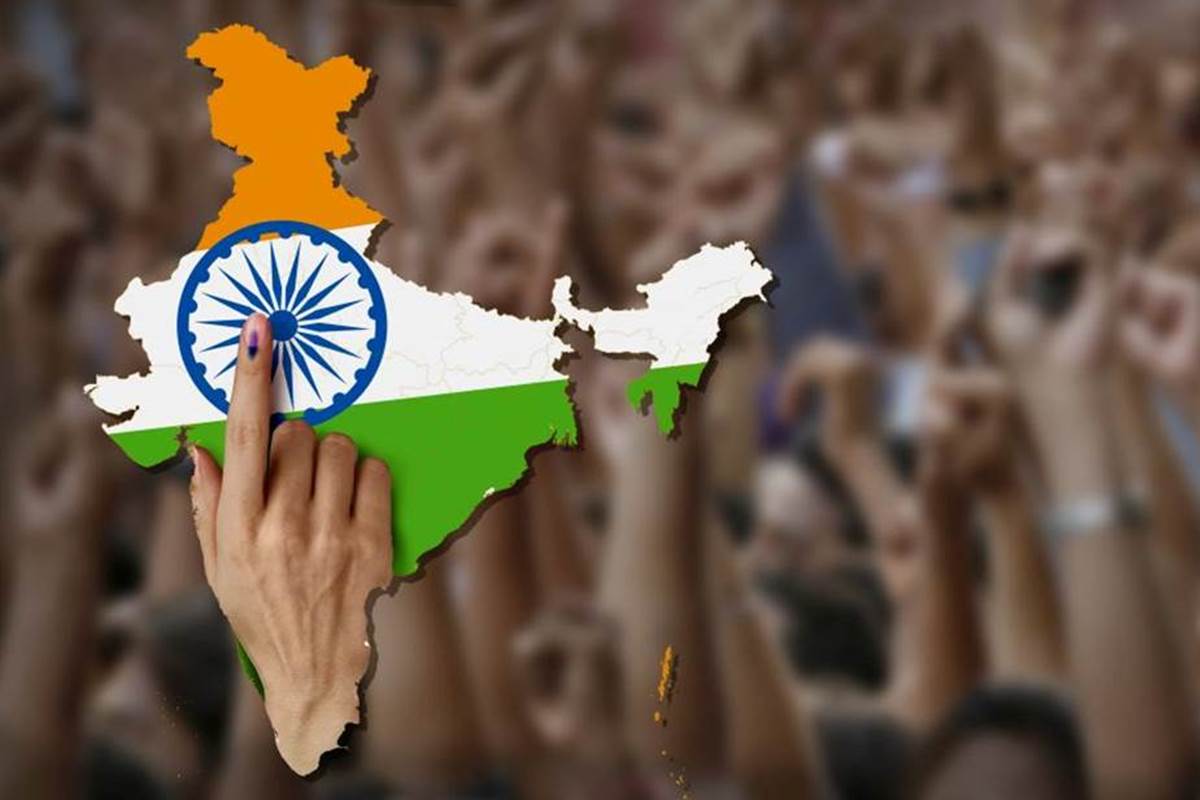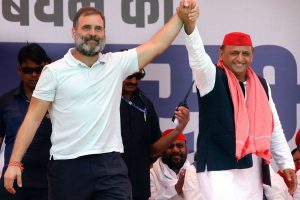India, the world’s largest democracy, is going through the motions of a general election. Never in the history of Indian democracy has a party or a coalition been able to secure power at the Centre with the support of more than 50 per cent of the net population. In several cases, the support base was hardly 30 per cent of the national population. Though the concept of democracy was evident in the Indus Valley Civilization, the Greeks and Romans made it a vibrant institution. Can India boast a functional democracy like the countries of the West? Can the festival of democracy remain really free from the control of a select few?
According to a recent World Bank report, 32.7 per cent of the country’s population lives below the poverty line, whereas 68.7 per cent survive on less than $2 per day. An estimated 45 per cent of the children are malnourished as are 21per cent of the adults. Unemployment is on the rise though the rate of literacy has increased. But how many neo-literates can really make use of their literacy or the education that they have received? Neo-literates are by and large engaged in livelihoods that require very little education. They pursue their ancestral occupation. The gains of development have not been able to change the nature of their occupation, let alone the quality of life. So, how can they join the festival of democracy from the core of their heart? Yet, the percentage of polling in recent years is undoubtedly astounding.
Advertisement
As often as not, elections are influenced by muscle power and money power. As the majority of Indians are dependent on powerful people ~ politicians, wealthy businessmen and powerful bureaucrats ~ common people usually do not enjoy the right to exercise their franchise independently. They are often coerced or coaxed. The noted sociologist and former Member of the Planning Commission, Rajni Kothari, has referred to a growing trend of politicization of caste on the one hand and the “casteization” of politics on the other. Political parties or their leaders woo voters on the basis of caste, and depend on the influence of caste leaders on the members of the caste-groups. The caste leaders utilise the opportunity to rub shoulders with influential political leaders to reap benefits that could not have been possible to gain in the existing constitutional framework. The manner in which the yardstick of job reservation has been reworked demonstrates how politicians are determined to woo the voters in their anxiety to win votes. Every political party has a single gameplan ~ to upstage the opponent by distributing freebies.
The Election Commission’s Model Code of Conduct comes into force with the announcement of the poll dates. Parties make their pledges and promises accordingly. But the people can’t be fooled all the time. They do realise that the promises made before the elections are meant to be broken. Then, how can an election become a festival of the masses?
As regards the track record of the candidates contesting in the 2019 Lok Sabha poll, the scenario is decidedly discouraging. Those who took part in active politics before Independence had intended to serve the country as patriots. In the decades since Independence, the singular ambition of politicians is to serve their selfish interest as selfish beings. The transition from the British Raj to India was able to bring about a radical transformation of minds ~ the patriots became selfish souls. How can politicians amass enormous wealth in a poor country like India ? Why are corrupt leaders and tainted MPs and MLAs more popular than leaders who were known to be honest and hard working? Has colonization made the majority of Indians greedy and prone to corruption?
The fruits of development since Independence have largely been reaped by influential sections. This has led to the accentuation of class polarization in society. Being poor is not always a reflection of honesty. Many poor men and women are dishonest. But falling into the trap of dishonesty does not exonerate them. Many have become poor because of their idleness and adherence to malpractices and corruption. These people join different political parties during the season of elections in lieu of money, liquor or other attractions. They betray scant regard for ethics and are the major conduits of what is known as criminalization of politics. They are the major players to make the festival of democracy a veritable horror in certain parts of the country.
Democracy is a system of Goverment by the whole population or all the eligible members of a state, typically through elected representatives. Democracy is a system where the citizens exercise power by voting. But in a country like India where there is an obnoxious disparity in wealth, education, culture, ethical practices and social opportunities, how can democracy play the role of a meaningful catalyst of development ? Can democracy sustain in a relatively underdeveloped country like India?
The concept of democracy was artificially implanted in India from the West at the behest of the Nehruvian legacy. But the social roots of the Western democracy lack a firm foothold in a country like India where decentralization of power through a multistage Panchayati Raj would have been a more prudent and justified model of governance.
Unbridled corruption, unequal distribution of wealth and power through states and individuals and a faulty administrative system have exposed the limitations of the Western model of democracy that was forcefully applied in our country. All statesmen and policy-planners need to reflect on whether comprehensive nation-building is possible in a country like India. Recent trends of terrorism, separatism and regionalism have squarely exposed the limitations of democracy in India.
(The writer is formerly of the Sociology faculty of Presidency College, Kolkata)











